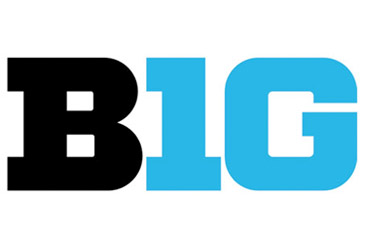Penn State's Sanctions Impact Big Ten
By Benjy Lipsman in News on Jul 23, 2012 7:00PM
 This morning, the NCAA announced major sanctions for Penn State as a result of the Jerry Sandusky scandal and the university's actions to cover it up. The sanctions fine the school $60 million, force the team to vacate all wins dating back to 1998, ban it from postseason play for four years, take away 90 scholarships over the next five seasons and place the school on probation for five years. The Big Ten broke its silence and issued additional sanctions, including cutting Penn State out of the conferences bowl game earnings.
This morning, the NCAA announced major sanctions for Penn State as a result of the Jerry Sandusky scandal and the university's actions to cover it up. The sanctions fine the school $60 million, force the team to vacate all wins dating back to 1998, ban it from postseason play for four years, take away 90 scholarships over the next five seasons and place the school on probation for five years. The Big Ten broke its silence and issued additional sanctions, including cutting Penn State out of the conferences bowl game earnings.
What did not happen is a complete suspension of the football program—often referred to as the NCAA's "death penalty." Many wanted to see Penn State receive the death penalty as punishment for these transgressions. Others believe the "unprecedented" punishment meted out is actually worse than forcing the Nittany Lions off the field for a season.
In effect, the NCAA appears to have said that the death penalty is no longer on the table when it comes to punishing athletic programs. College sports like football have become big business, often the tail wagging the dog within a school. NCAA president, Mark Emmert said as much during today's announcement, that universities must now contemplate whether their own athletic programs had become “too big to fail,” or, even, “too big to challenge."
Much like the Wall Street mess, the "too big to fail" claim is due in large part to the impact such severe penalties would have against other organizations in addition to that being punished. Were Penn State forced to suspend their football program for a year or more, there would be a hole in the schedule of all their 2012 opponents. This would most impact their fellow Big Ten members, who would lose the revenue associated with playing a conference game—especially those hosting the match-ups. Forfeit wins would also wreak havoc on the polls that determine bowl bids and championship hopes, and thus impact the bowl money the Big Ten might earn.
Instead, the NCAA will allow Penn State to suit up and take the field, but ensured that they will not have a chance to play in the Big Ten Championship game or any bowl game. Of course, by taking away so many scholarships and allowing current players to transfer without penalty, the Nittany Lions will have a much harder time fielding roster with which to compete anyway.
The sanctions combined with the departure and death of Joe Paterno, who built the Penn State program into the powerhouse it was, mean the annual success that Happy Valley experienced for decades may be no more, or at least for a long time. And with Penn State's likely lengthy slide toward the Big Ten's basement, the balance of power may be forever changed in the Big Ten.
Penn State, ironically, was assigned to the newly created Leaders division last year along with Ohio State, Indiana, Purdue, Illinois and Wisconsin. With Ohio State also facing sanctions, the division appears to mean the Badgers can already book their hotel room in Indy.
What happens long term to the Big Ten's divisional arrangement? With traditional powerhouse programs evenly divided, the Legends appears to be much stronger in the wake of recent scandals. On Monday, Big Ten Commissioner Jim Delany addressed that question stating that the conference would not consider divisional realignment at this time, "The sanctions will undermine competitiveness in the short term and mid-term, but I don’t think that will lead to serious discussion of realignment."
For the other schools in the Leaders division, there appears to be an opportunity to make lasting improvements to their program by poaching current Penn State talent while also having an upper hand in recruiting for years to come. Can teams like Indiana, Purdue and Illinois build successful and successful programs? Or will the remaining powers in the Big Ten like Michigan and Ohio State benefit most by landing the best of the best now and in the foreseeable future?
The worst scenario would be for the players re-thinking Penn State to forgo the Big Ten entirely. Penn State's loss could benefit Notre Dame or schools of the Big East and ACC like Syracuse, West Virginia or Pitt.